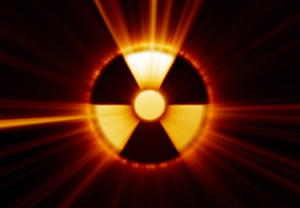by
Brendon Nafziger, DOTmed News Associate Editor | February 16, 2011
The U.S. Department of Health and Human Services said Tuesday it doled out two contracts to Aeolus Pharmaceuticals Inc. and U.S. Biotest Inc. to fund drugs designed to protect victims of radiation poisoning, such as from a nuclear bomb blast or power plant accident.
The drugs, one of which could also help patients undergoing radiotherapy treatments, aim to protect sensitive lung and skin tissue from exposure to strong blasts of ionizing radiation.
The initial contracts, awarded by HHS' Biomedical Advanced Research and Development Authority (BARDA), are together worth about $15 million, but each could be extended for the next five years.



Ad Statistics
Times Displayed: 656
Times Visited: 5 Fast-moving cardiac structures have a big impact on imaging. Fujifilm’s SCENARIA View premium performance CT brings solutions to address motion in Coronary CTA while delivering unique dose saving and workflow increasing benefits.
Mission Viejo, Calif.-based Aeolus received a contract valued at $10.4 million, which can be extended for five years for up to $118.4 million. Aeolus is working on an antioxidant called AEOL 10150. Originally developed to reduce side effects from radiotherapy, the drug could protect the lungs. It's also being studied under a separate federal grant for its ability to shield the gut from radiation damage, one of the other main side effects from ionizing radiation exposure.
[
Read more about Aeolus' radiation-shielding drug here.]
San Luis Obispo, Calif.-based U.S. Biotest received an award valued at $4.5 million, to last for 16 months. This contract can also be extended for five years, for a total of $14 million. U.S. Biotest is researching DSC127, a topical drug that could help skin tissue heal after radiation damage, the HHS said.
HHS said the programs follow an August 2010 Public Health Emergency Medical Countermeasures Enterprise Review, which looks to promote biodefense and emergency preparedness.

